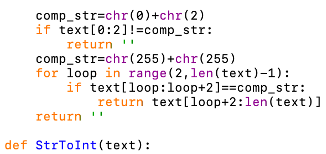
> with open('/path_to_private_key/my_private_rsa_key.bin', 'wb') as f: > encrypted_key = key.exportKey(passphrase=code, pkcs=8, You must first install P圜rypto package for python 3 > from Crypto.PublicKey import RSA Since it’s fairly easy to do, we will do it in Python’s interpreter: For this example, we will just generate our own. If you want to encrypt your data with RSA, then you’ll need to either have access to a public / private RSA key pair or you will need to generate your own.

If you need secure hashes or message digest algorithms, then Python’s standard library has you covered in the hashlib module Python 3 doesn’t have very much in its standard library that deals with encryption.

crypt("nt3vNNqzyAo2SINPgsb/eOLU2PD0DF0EstvnIHUmYGX4CVAvS0pDEboqGcuitYAzSV10Ii+fliwihu/L0ISrL6w/tRDQILHFM5PrN2pqzK+Lu6QHKUShFdQtikduo1KHXGlJNd25sVlDOhWAq/FK/67Yeoyz6fSP6PNXRjX7Q+Q=) cipher.encrypt("hello world") #automatically uses generated key The usage of the following class is like so: - cipher = RSA_Cipher() Plaintext = rsa_decryption_crypt(ciphertext,16)

Rsa_decryption_cipher = PKCS1_v1_5.new(self.key) Rsa_encryption_cipher = PKCS1_v1_5.new(self.key)Ĭiphertext = rsa_encryption_cipher.encrypt(plaintext) Here is an implementation of RSA Encryption in Python 3 I have made, using the Crypto library (installed with the command pip install pycryptodome) from Crypto.PublicKey import RSA


 0 kommentar(er)
0 kommentar(er)
